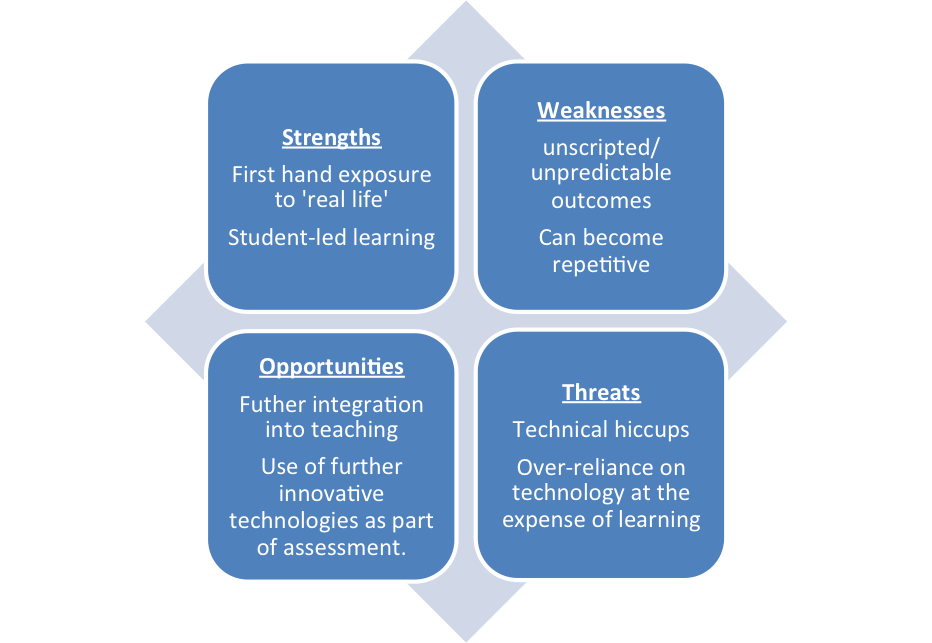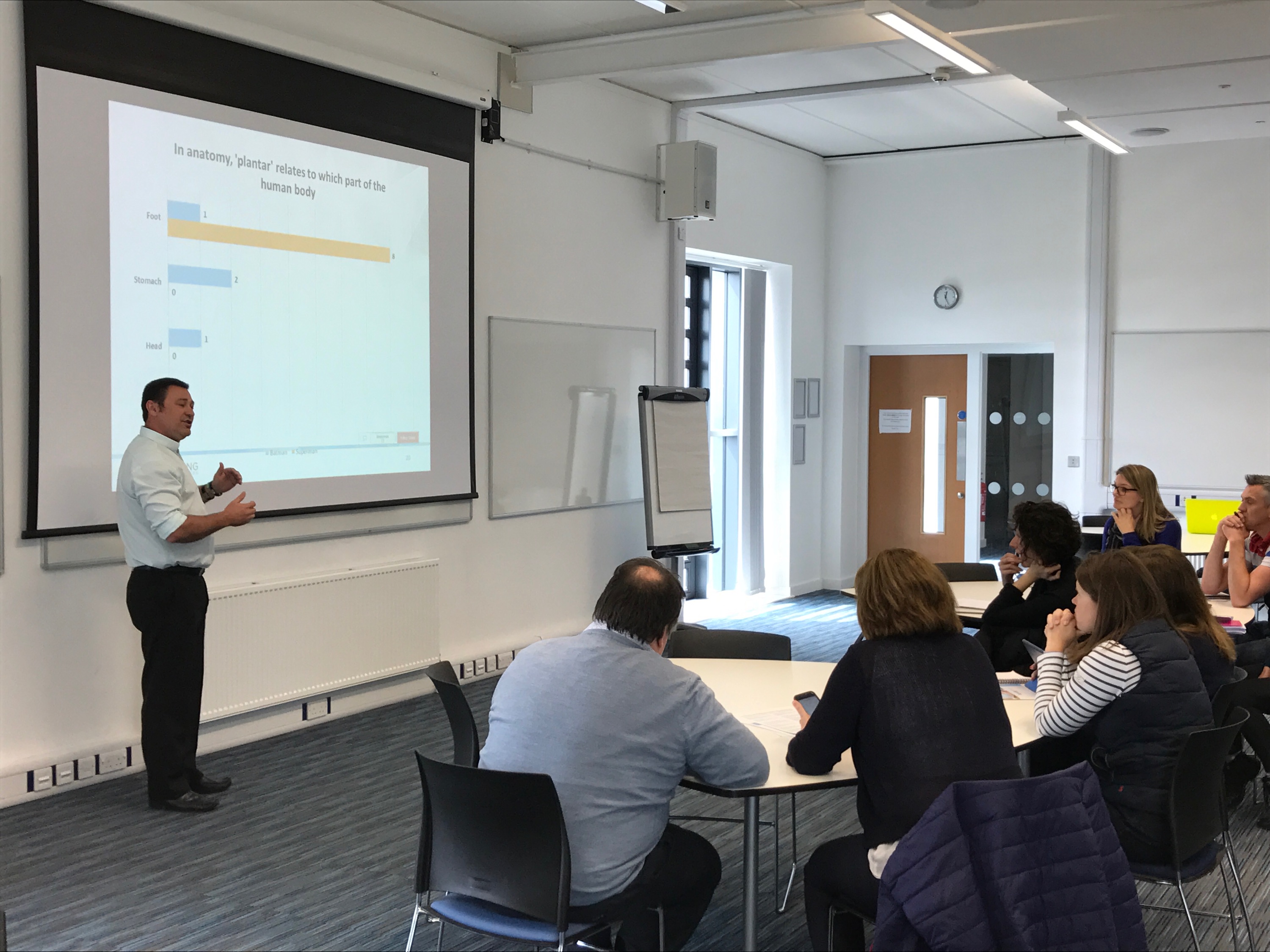The LITEbox seminars continued on Monday 20th July with an engaging event focused on the use of Videoconferencing in Higher Education. The session was led by Dr Wali Aslam a lecturer in the Department of Politics, Languages & International Studies who is developing research-led teaching and learning activities that encourage higher-order learning among University of Bath students. Specifically, Dr Aslam presented his experiences of using a blend of Twitter and Skype to organise interactive videoconference sessions with academics, students, aid-workers, social activists and journalists from across the Middle East and Asia. The units discussed in relation to these innovative activities were:
- PL30881: Contemporary Security Challenges in Asia
- PL20889: Contemporary Politics of the Middle East
Within the session Dr Aslam discussed that his teaching approach was guided by two interrelated ambitions:
- To allow the students to come into contact with a range of individuals across the world to learn from their ‘real world’ experiences of living, working and researching in Asia and the Middle East
- To establish a research agenda and contribute to the literature around the use of videoconferencing in teaching.
In other words, the key intended learning outcome for the teaching side was to enhance the students’ inter-cultural understanding of policy and governance beyond European contexts through technology. On the other hand, the key research outcome was to contribute to the significant lacuna within the literature concerning this topic.
Dr Aslam shared a number of case studies in order to demonstrate some of the strengths, weaknesses, opportunities and threats (SWOT) of utilising Skype and Twitter and this generated considerable discussion amongst the attendees as well as on Twitter (using #LITEboxWali).

Dr Aslam’s experiences have demonstrated that technology-enabled learning through videoconferencing and Twitter is able to bring students closer to the topics and issues they are studying by bridging “inter-cultural blindness” and learning from the everyday experiences of those who are impacted by international security and governance issues. Furthermore, the students also benefitted from extended dialogue beyond the class time as Dr Aslam noted that some students had engaged in longer-term conversations and established networks with certain associations via Twitter. Similarly @Boingkids and @Julia_Sargent tweeted:
@Boingkids: "our research at Brookes into this is finding significant increases in engagement outside of lectures when these technologies are incorporated into the pedagogy of the modules"
@Julia_Sargent: "Benefits:engaging with scholars all over the world, personal approach but also disseminating knowledge to others, flexible. disadv-'public' space(?)certain level of technological literacy/engagement,how can you use the knowledge gained ethically?"
Although @Julia_Sargent noted the flexibility of this approach Dr Aslam also cautioned about the need for lecturer interaction and lecturer-led discussion, particularly about the ethics of online communication when discussing sensitive issues such as global conflicts and complex emergencies. Cultural sensitivities in relation to shame, fear and guilt need to be contended with and the lecturer must moderate the sessions carefully to ensure that the intended learning outcomes are met, the students have adequate knowledge of the contexts they are entering and that they have the competence and confidence to engage with the learning technologies. Technologies in this instance are not a means to an end, rather they are integral part of the learning process capable of putting theoretical concepts and lecture material ‘into action.’
Dr Aslam is in the process of analysing the data he has collected from his students to ascertain the benefits and drawbacks of videoconferencing in terms of students’ higher-order learning. Any comments, observations or experiences would be warmly welcomed using #LITEboxWali on Twitter or commenting below.
Here are some photos taken during a taught class by Dr Aslam showing how students interact with guest speakers by using Twitter and Skype:
Responses







